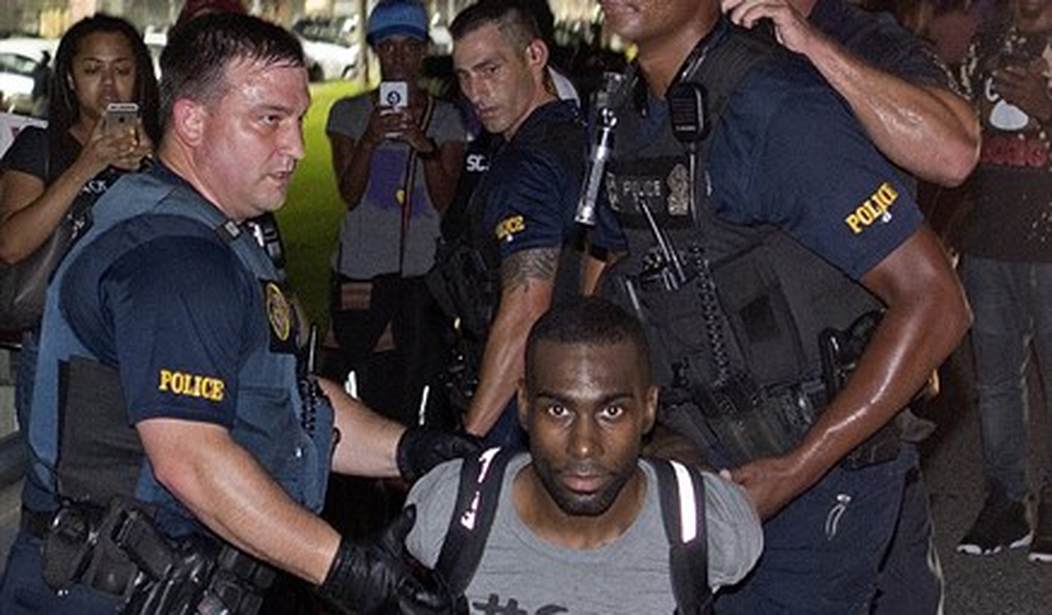Top News
Appeals court rules BLM can be sued for police injuries

There’s a case making its way through the courts in Louisiana that could potentially have significant implications in a country where protests have grown more numerous and often turn into violent riots. Back in 2016, long before the Summer of Love, Black Lives Matter activist DeRay Mckesson was already stirring up trouble. Following the police shooting of Alton Sterling, a Black man, Mckesson organized a protest that quickly swelled out of control. A police officer was injured during the scrum and a lawsuit was subsequently launched against Mckesson seeking damages. That case has been bouncing back and forth in the courts for years, but now a panel for the 5th U.S. Circuit Court of Appeals has ruled to allow the lawsuit to proceed. At Reuters, columnist Hassan Kanu finds this turn of events to be disturbing because of potential implications for free speech and the right to peacefully demonstrate.
A federal appeals court in Louisiana decided last week that a cop can sue a protest organizer for injuries caused by another person during a demonstration, ratifying a novel legal theory that threatens to further suppress protests and First Amendment rights more broadly.
The 5th U.S. Circuit Court of Appeals on June 16 allowed an officer who filed anonymously to proceed in his suit alleging negligence against Black Lives Matter activist DeRay Mckesson. The court held that it’s plausible that Mckesson is liable for the officer’s injuries because they were a foreseeable consequence of his negligent planning: Mckesson planned to block a public highway — a crime in Louisiana — which made it likely that a violent confrontation with police would ensue, according to the 5th Circuit.
In case you’ve forgotten the specifics of the Alton Sterling shooting, the whole case was a mess. The entire thing was caught on video by numerous witnesses and the subsequent release of those videos created an uproar. Police were responding to a complaint that Sterling was selling stolen CDs on the street and had threatened someone with a gun. The cops did find a loaded handgun on him, but they were very loud and rough during the attempt to take him into custody. The state opened an investigation and eventually decided not to press charges against the officers, determining that they had acted in a “reasonable and justifiable manner.” But the issue was clouded when the East Baton Rouge Metro Council later awarded a $4.5 million settlement to Sterling’s family, seeming to tacitly admit to some level of guilt.
But the case we’re dealing with today isn’t about Alton Sterling. It’s about the police officer who was injured when an unidentified protester hurled a rock or other object at him during the protest/riot that DeRay Mckesson organized. Can the activist be held legally accountable for the actions of one of the other protesters when he wasn’t even in the immediate vicinity?
That seems to be the argument that the 5th Circuit is making. They aren’t commenting on the case because it may still be heard by the full court and potentially even the Supreme Court. There does seem to be precedent suggesting that Mckesson can’t be held accountable and no evidence was ever produced showing Mckesson actively encouraging the protesters to engage in violence. Nor has it been suggested that Mckesson himself threw any objects or engaged in any other sort of violence.
But as the primary organizer, would or should Mckesson have known that the protest might turn into a riot resulting in injuries? To the layman who has watched too many of these sorts of race-fueled protests play out, the answer might seem to be “yes.” And the rioters were collectively engaged in the commission of a crime at the time. (They were intentionally blocking a highway.) But that’s a steep hill to climb in front of a court.
If the person who actually threw the rock or object at the police officer could be tracked down, they could certainly be subjected to a civil lawsuit for damages. But no evidence of that has turned up and the assailant remains unknown. Mckesson probably “feels” like the next most culpable person and a possible target for the police officer receiving compensation. But I will be honestly surprised if this ruling survives further review. The courts will likely see the potential impact of such a precedent on free speech as too great of a bridge to cross.
Read the full article here


















